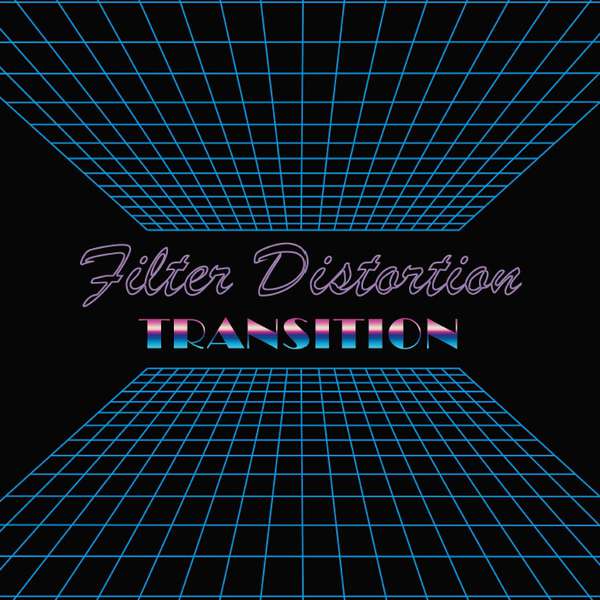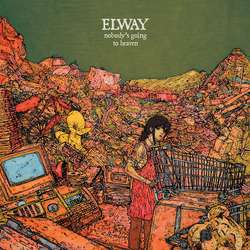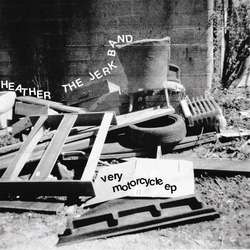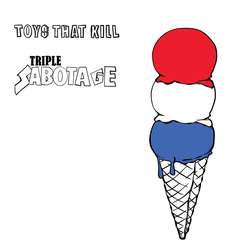Yet another group that, like Trust, CHVRCHES, or any of the artists featured on the Neonautics compilation, is mining the world of ‘80s synth rock in search of inspiration, British four-piece Filter Distortion seem like an alternate version of Perturbator with vocals, replicating the vintage electro sound very accurately. Driven by bouncing synthesizer lines and punchy rhythms, the group’s songs revolve around robotic vocals which makes them seem slightly cold and detached. The reliance on prominent hooks ensures that there’s an inherent catchiness to the band’s extremely well-produced 2015 debut album Transition, but even if this music would fit right in at a retro-themed dance club, it lacks the pathos of Chromatics’ Kill for Love and seemed kind of flat emotionally. Nonetheless, for those looking for that classic synth rock sound, this album should fit the bill nicely.
Transition begins with the moderately-paced and flowing “Black and White,” which plays out to a combination of stomping bass and bright synthesizer. Featuring confident vocals which soar over the instrumental parts as well as a glowing interlude around the two-thirds mark, this opener is followed up by the more smoky and dark “Pressure.” The synths here are more screechy, joined by some subtle guitar which lurks under the more prominent electronic elements. Melancholic keyboard chords herald the start of “Resonator Express,” perhaps the most danceable of the opening trio of tracks, while “Midnight Drive” changes up the rather somber mood of the album with a downright cheerful piece highlighted by a less synthetic-sounding main vocal.
The arpeggiator gets a workout on less song-like fifth track “Frequency Modulation,” which plays like a journey through sound punctuated by a stuffy narrator explaining the process by which FM and AM radio signals are sent out and received. “Neon Nights” may be the track here that best shows off singer Wesley Hughes’ voice, which has the same slightly sleazy quality as Trust vocalist Robert Alfons. Initially, Hughes utilizes the groany but sonorous delivery heard elsewhere on the album, but he really lets loose in a higher register during the song’s rather dramatic chorus. The following two tracks are probably the weakest on the album: “Cameras in the Dark” is a bit too sugary and corny for my taste, with a warm guitar melody and bubbling bassline while “When The Lights Go Out” recalls various synth ballads from the eighties. A breathy female vocal sings harmony on penultimate track “Lost Boys,” and though this track too has a more bright sound, it may just be my favorite before the album ends with the spacey “Game Over.”
Even if this album has a few missteps and didn’t quite connect with me on a level I might have wanted it to, I definitely appreciated the moodiness of Transition in comparison to something like Cut Copy’s overly chipper Free Your Mind. Honestly, it’d be difficult to name a band doing the synth rock thing as well as Filter Distortion does it here – these guys clearly drink the punch when it comes to making this kind of music instead of just half-assing their way through it, and I’d imagine that listeners looking for energetic and danceable tunes would enjoy this record immensely. Considering how many contemporary groups seem to be utilizing these ‘80s song formulas, I wouldn’t be surprised if this band gets more and more attention in the wake of this solid and very likable if not entirely outstanding debut.




